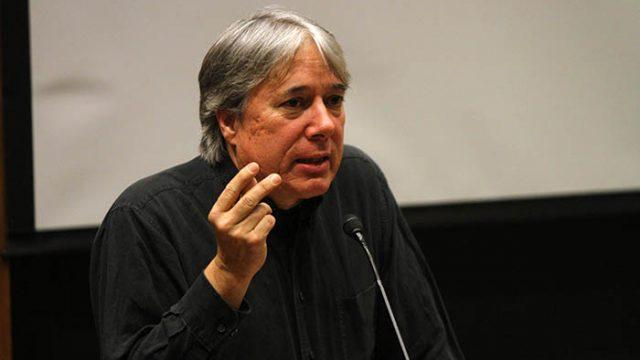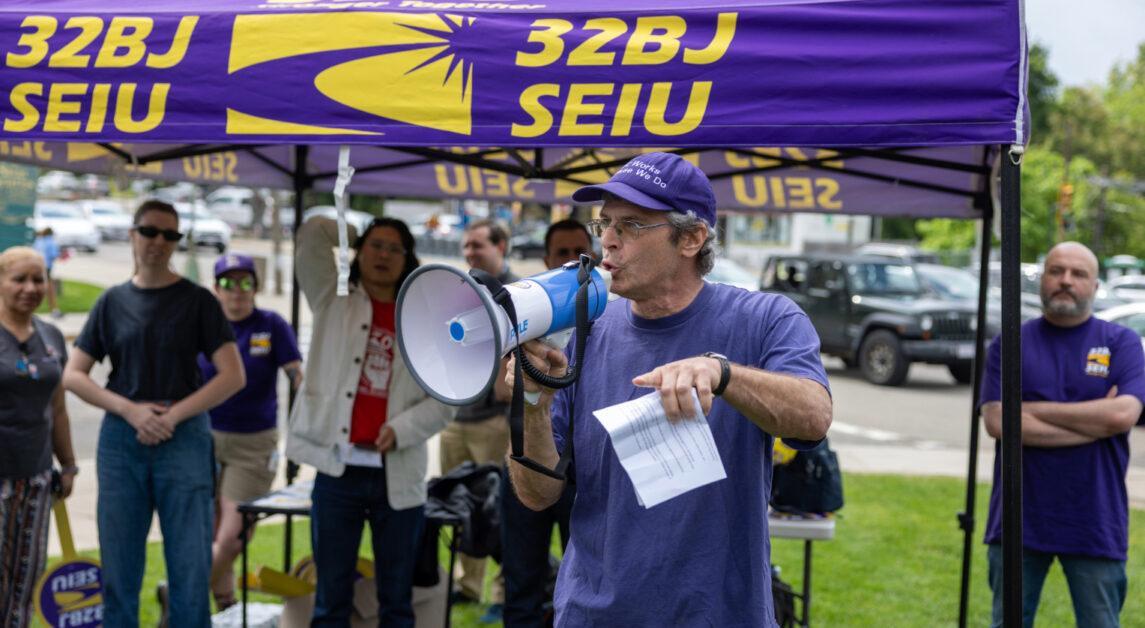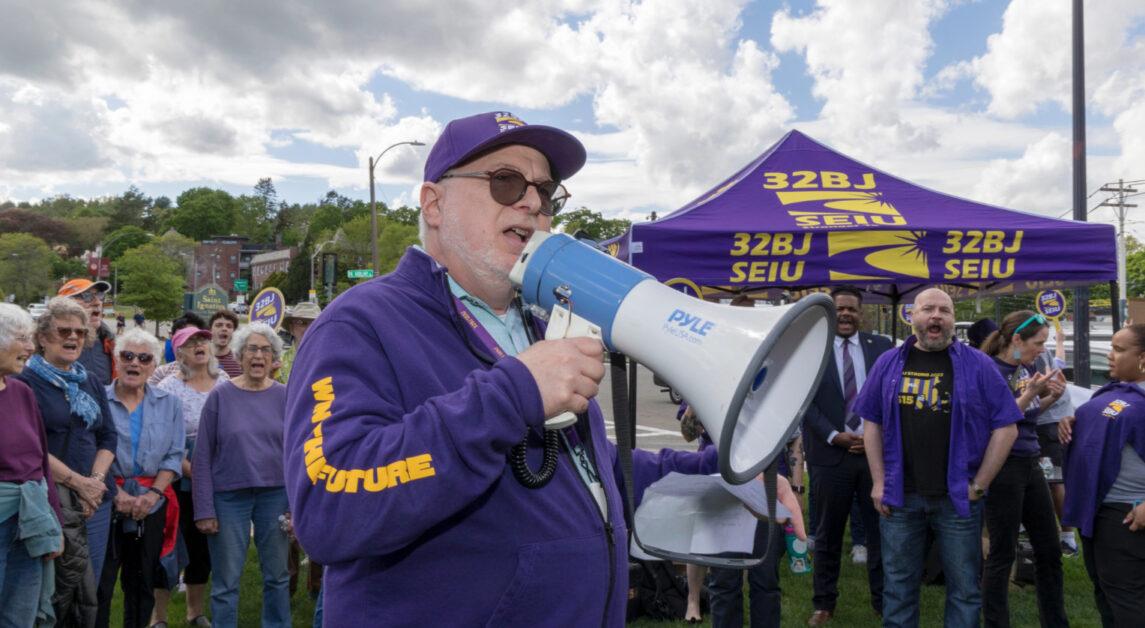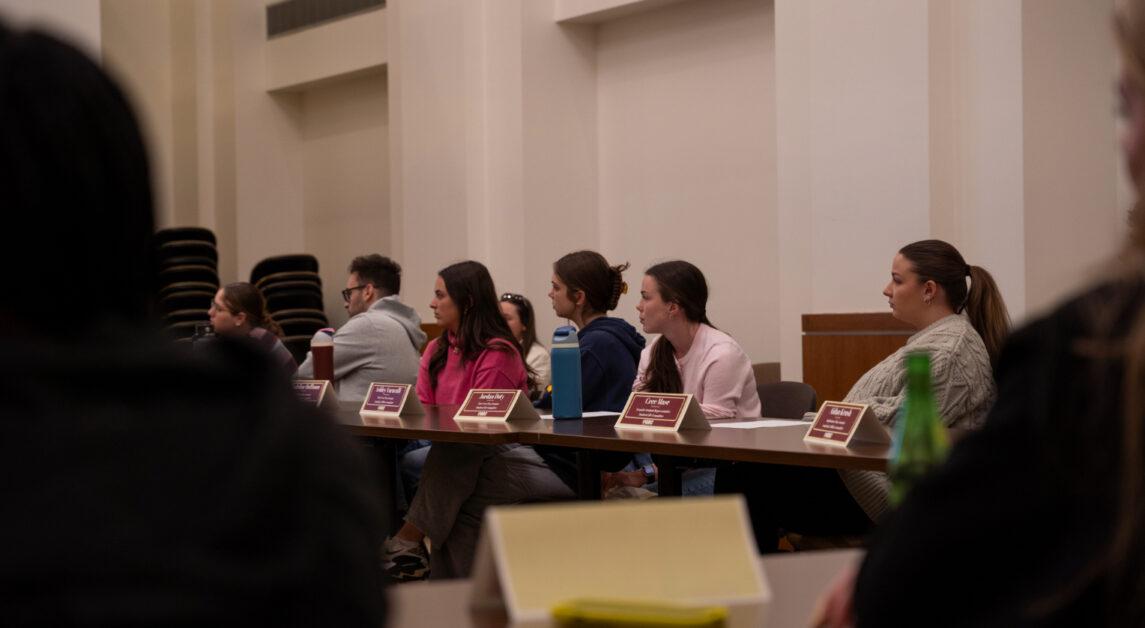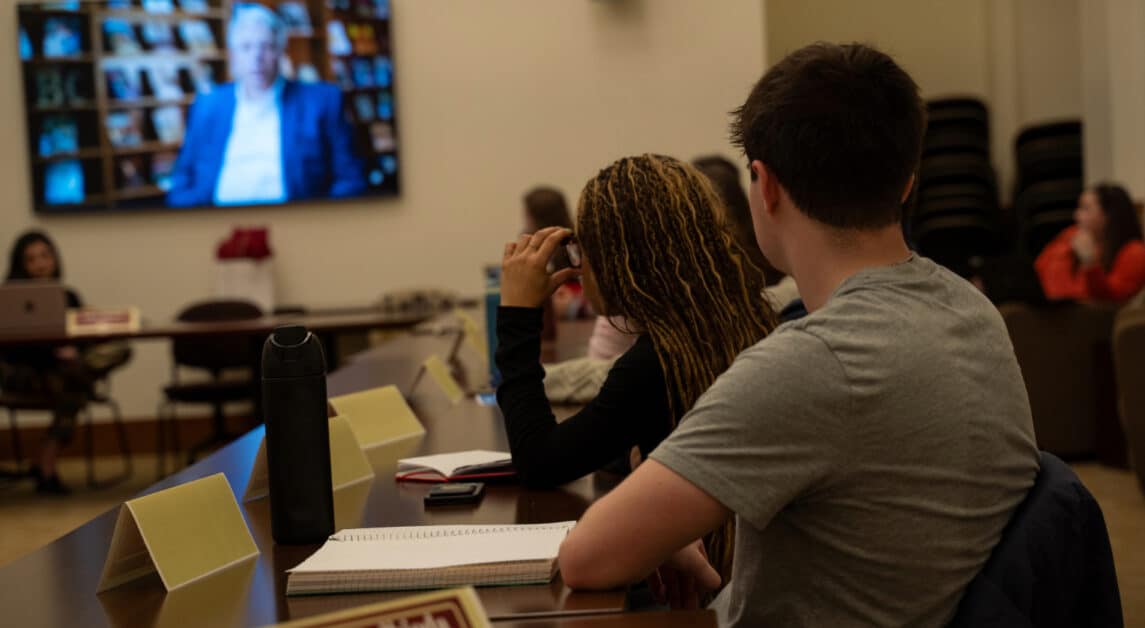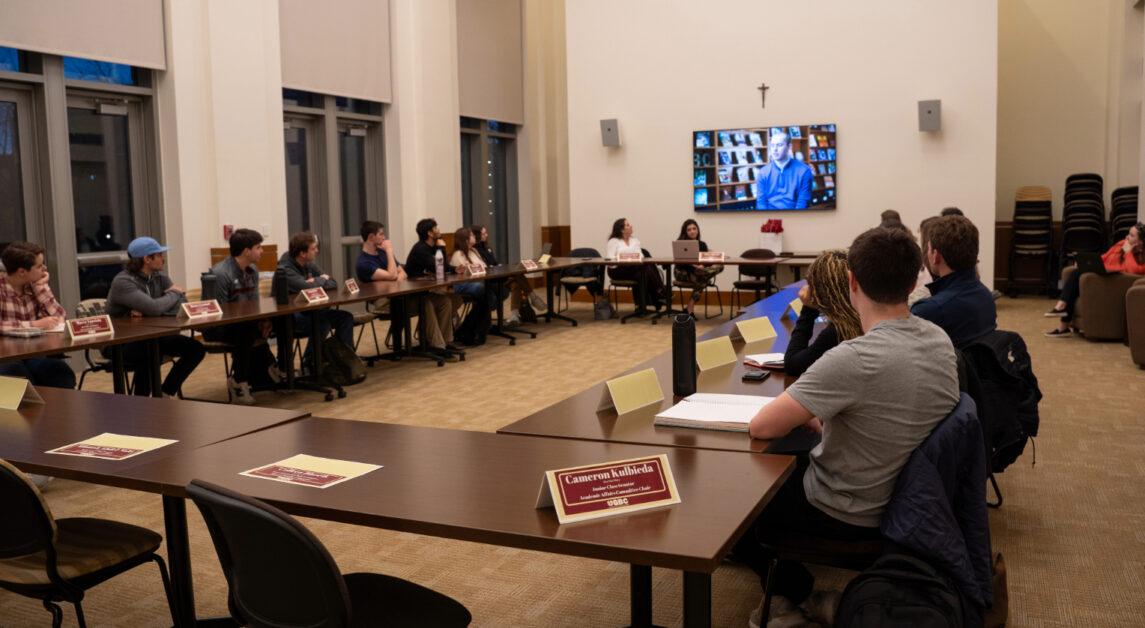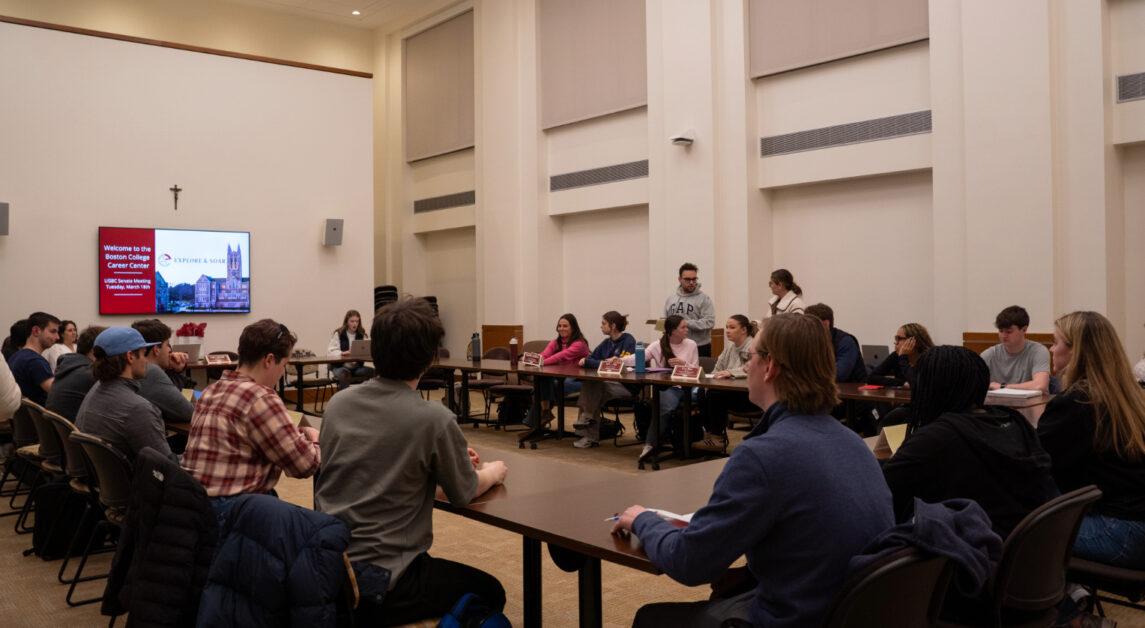What does Oscar Mayer have to do with wealth inequality in America? Chuck Collins opened his lecture Tuesday night, focused on his new book Born on Third Base, explaining this question.
Collins was born an heir of the multi-million dollar meat and cold-cut corporation and discussed the steps he has taken in his life that have since separated him from the wealth of the business.
Early in his career, Collins realized the gravity of his wealth and privilege and how ingrained these systems were in American society.
Collins was working with tenants about to lose the land on which their mobile homes sat, and they had a $35,000 dollar gap needed to buy the land and secure their homes. He remembered thinking he could have just written them a check with his trust-fund money and enable their purchase. Instead, what followed stunned Collins, because the people pooled all of their money, covering for people who had nothing to contribute, so that they could collectively buy the land.
Collins was moved by the solidarity of the community and this set the course for his life, which included giving away his inheritance to local, similar causes at age 26. He recounted the moment he knew he needed to make this substantial change.
“It made me think, ‘I want some of what they have,’” he said. “‘What they have is a community that stands up for each other and that’s all in for each other. That’s the kind of world I want to live in.’”
Collins set out on a life of activism focused on bridging the gap between the top 1 percent and everyone else in American society. He has advocated not only for charitable actions like his own, but also the systematic changes needed in America to heal the wealth divide and stop it from getting any larger.
His life proved a suitable background for this activism, as he described the unique position he was in to be able to witness this problem starting to take off in the ’80s. He was witness to his family’s wealth growing with seemingly no effort, but also witness to the stagnant wages of low-income, hard-working families he was working with in New England.
He then cited statistics that he encouraged the audience to carry with them.
“For the last 50 years, the economy has doubled in size, and yet real wages for the bottom half of households, has pretty much stayed flat,” he said. “The richest 100 households have as much wealth together as the entire African-American population in this country, which is 14 million households.”
Collins then discussed the implications of this inequality concerning the 2016 election and the current attitudes that he believes hurt his efforts. He resents the people who argue that all it takes is “hard work” to get rich, which contributes to the social stigmatization of receiving help. He targeted current politicians, namely Donald Trump, when addressing this issue.
“The guy who’s currently president, who likes to tell us how he’s a successful businessman—well it does help to start with a father who’s worth a $150 million real-estate empire, who brings you in, trains you, and sets you up with all kind of contacts,” he said. “That’s called a head start.”
Collins then made an intense call to action focused on local initiatives.
“I tell people born on third base … it’s time to come home … Bring your wealth, your full self, to a place, to a community,” he said. “Take it out of the offshore tax havens, out of the global financial casino, take it out of the fossil fuel sector, and move your money into local communities, the real economy of goods and services.”
He also encourages those not in the 1 percent to focus on organizing to make systematic changes in the government because he firmly believes philanthropy alone is not a sufficient substitute for an adequately funded public sector.
In light of the current political atmosphere in America, Collins ended his lecture recounting a recent rally he attended with people filing off buses and marching for a tax on financial transactions on Wall Street. He was amazed at the amount of people coming from the busses, and especially the passions and stories from these people. He encouraged the audience to keep this spirit alive.
“The good news is, there are a lot more people getting on those buses right now,” he said.

